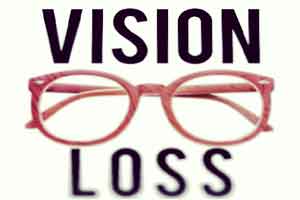- Home
- Editorial
- News
- Practice Guidelines
- Anesthesiology Guidelines
- Cancer Guidelines
- Cardiac Sciences Guidelines
- Critical Care Guidelines
- Dentistry Guidelines
- Dermatology Guidelines
- Diabetes and Endo Guidelines
- Diagnostics Guidelines
- ENT Guidelines
- Featured Practice Guidelines
- Gastroenterology Guidelines
- Geriatrics Guidelines
- Medicine Guidelines
- Nephrology Guidelines
- Neurosciences Guidelines
- Obs and Gynae Guidelines
- Ophthalmology Guidelines
- Orthopaedics Guidelines
- Paediatrics Guidelines
- Psychiatry Guidelines
- Pulmonology Guidelines
- Radiology Guidelines
- Surgery Guidelines
- Urology Guidelines
Vision therapy may treat convergence insufficiency but does not improve children's reading skills

Convergence Insufficiency is a common childhood vision disorder in which the eyes are unable to work together when looking at nearby objects, and the condition can make tasks like reading difficult. Results from a clinical trial have shown that while vision therapy can successfully treat convergence insufficiency (CI) in children, it fails to improve their reading test scores. The results of Convergence Insufficiency Treatment Trial - Attention and Reading Trial (CITT-ART) have been published in Optometry and Vision Science.
Eye care providers who treat CI have assumed that successful vergence/accommodative therapy, often called vision therapy, would lead to better reading fluency and comprehension."While in-office vision therapy can improve visual function for children with CI, this trial indicates that clinicians should not suggest that it will lead to increased reading performance," said lead study author Mitchell Scheiman, O.D., Ph.D., Salus University, Elkins Park, Pennsylvania.
When reading or performing other close work, the eyes must turn inward to converge. For children with CI, the eyes have difficulty converging accurately, which can lead to blur or double vision, causing symptoms like discomfort and difficulty maintaining concentration when reading. Results from the earlier Convergence Insufficiency Treatment Trial (CITT), published in Ophthalmology in 2008, showed office-based vision therapy to be the most effective treatment for improving convergence and ameliorating symptoms, and that treatment effects were long-lasting. This new clinical trial, CITT-ART, was designed to determine whether treating symptomatic CI would improve reading skills.
The study enrolled 310 children with symptomatic CI, ages 9 to 14 years, and randomly assigned them to two groups. About two-thirds (206) received in-office vision therapy for 16 weeks, and the remainder (104) received in-office placebo therapy for 16 weeks. The in-office vision therapy was designed to improve accommodation (focusing) and vergence (eye teaming, meaning the ability of the eyes to work together), while the placebo therapy procedures were designed to have no effect on CI.
The children's reading performance and clinical signs of CI were measured when the study began and again after completing 16 weeks of therapy. Reading comprehension was assessed using the Wechsler Individual Achievement Test- Version 3 (WIAT-III). Additional assessments included word reading and pseudoword decoding (sounding out fake words), as well as oral and silent reading fluency. Clinical signs included measures of how well the eyes work together to converge on near objects. Symptoms were measured using the Convergence Insufficiency Symptom Survey.
While all children showed improved reading comprehension on the WIAT after 16 weeks, there was statistically no difference between average reading improvement for the CI treatment group (3.68 points) and placebo group (3.80 points). Nor was in-office vision therapy better than the placebo therapy on other standardized reading tests. Meanwhile, 75-80% of children in the vision therapy group had shown significant improvement and fell into the normal range for clinical signs, compared with approximately 30% in the placebo group. These results are similar to the original CITT study. However, the latest findings show no significant difference in symptoms, with 62% of children in the vision therapy group versus 58% of children in the placebo therapy group reporting significant symptom improvement. These findings suggest that clinical measures, rather than self-reported symptoms, are critical for assessing CI severity and improvement in children.

Disclaimer: This site is primarily intended for healthcare professionals. Any content/information on this website does not replace the advice of medical and/or health professionals and should not be construed as medical/diagnostic advice/endorsement or prescription. Use of this site is subject to our terms of use, privacy policy, advertisement policy. © 2020 Minerva Medical Treatment Pvt Ltd